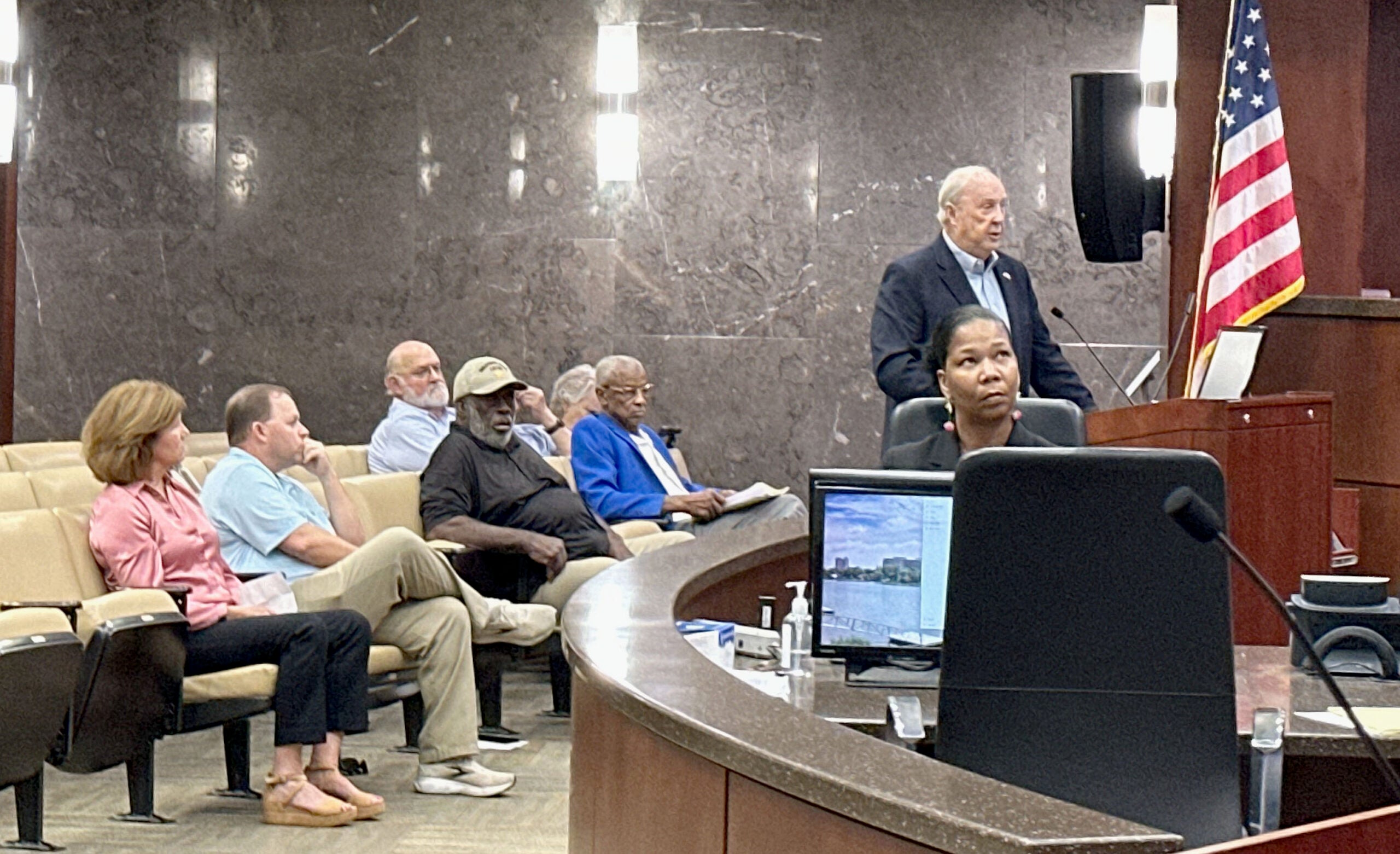The Augusta Charter Review Committee made its first big decision Thursday, opting to keep Augusta’s current electoral system rather than adopt at-large voting or change commission districts.
The recommendation, which could be undone by the committee or rejected by state legislators, keeps the current system of 10 commission districts, meaning commissioners must live in the districts and are elected by each district’s voters.
The measure passed 10-1 with member Roderick Pearson opposed.
Pearson, Steve Foushee and a handful of other committee members have pushed the committee to consider changing the system, by eliminating the two “super districts,” – 9 and 10 – or by some other means.
Pearson has said allowing commissioners to live anywhere across the city would create a better pool of candidates for office.
Historically, during the era of voting rights lawsuits, cities moved away from at-large voting due to its impact on minority voting strength.
Committee Vice Chairman Clint Bryant said Thursday that based on feedback from former commissioners, former mayors and the community, changing the structure should be taken off the table.
Many locally have expressed concerns about the change, while some might reject an eventual referendum on the new charter because of it, he has said.
“I think it’s an issue we can go ahead and put to bed,” he said.
Former commissioners share opinions
Invited to speak Thursday, eight former commissioners had varying opinions on the charter, but few voiced support for at-large voting.
Former Commissioner Don Grantham got the ball rolling, saying the committee should have consulted them before seeking public input. He recalled the 5-5 commission Black and white split, which many believe was engineered into the current charter.
Grantham said he could support at-large voting, provided “representation” remained intact.
Former Commissioner Mary Davis said the charter changes should include converting to a city manager form of government.
The manager hires and fires department heads, which should not be a commission job, she said.
Augusta’s mayor should retain the vote he or she now has on all commission actions, she said. Voters approved the vote by referendum last year.
Davis said while she believes 10 commissioners is “too many,” commissioners should continue to live in and be elected by their districts.
Former Commissioner Marion Williams noted the “elephant in the room.”
“People act like they can’t see we’re a diverse city,” Williams said. In the past, “Augusta’s Black population didn’t feel like they were getting the representation.”
Former Commissioner Moses Todd, who unearthed older litigation surrounding at-large voting in Richmond County, helped organize the commissioners’ visits Thursday.
Todd said he hasn’t named his preferred form of government, other than the one having “less malfeasance,” and a better chance at “eliminating waste fraud and abuse.”
Former Commissioner Matt Aitken recalled being the commissioner who broke the 5-5 split when he was elected. “District 1 was a pretty hot seat back then,” he said.
Most prefer hiring manager
Former Commissioner Sean Frantom agreed that adopting a manager form is key. “Anything else shouldn’t even be discussed,” he said.
Other options include having a strong mayor, or the current commission-run system. But Augusta’s mayor shouldn’t be given “more of a say” over the manager than commissioners have, Frantom said.
Former Commissioner Jerry Brigham noted the city’s success in water production. He rejected concerns about Augusta’s manager having to report to the entire commission and mayor.
“If you work for GM, you don’t work for one person. You work for the board of directors,” Brigham said.
The commission should be responsible for hiring and firing the city’s chief administrative officer, Brigham said.
He warned against the committee overlooking “one person, one vote.” The principle, found in the Equal Protection Clause, requires each person’s vote to carry the same weight.
“I guarantee you it applies to Augusta,” Brigham said.
Former Commissioner Louis “Hap” Harris, who served as an interim commissioner for about a year, recalled commissioners’ ability to turn on a department head “at the drop of a hat.”
Former Commissioner Ben Hasan, who with Todd has attended most of the committee’s meetings, said his position has shifted since the charter review process began.
Hasan said he started with the mindset changes are not needed, but now favors a manager form of government













